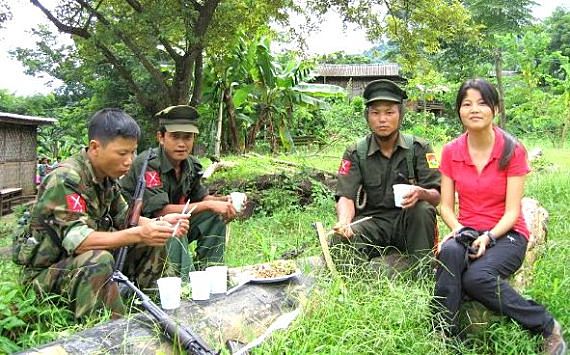
SHENZHEN IS BY many measures the most modern city in China.
It boasts the most densely packed metropolis, the highest salaries, the most expansive taxis, a huge port and a techno-mecca that rivals any other the planet has to offer.
But at least one twenty-something local woman has turned her back on the siren’s song of surefire gain and flung herself far asunder – Myanmar in this case – to both help regional neighbors and perhaps find herself in the process.
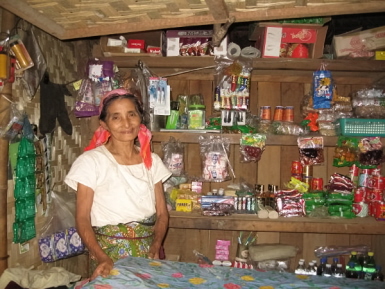
In this installment of NextInsight's fortnightly series profiling both locals and expats who call Shenzhen home, we meet adventurer and aid worker Ms. Yang Rong who has been working these past four years with an international aid group helping villagers in the rugged and often inhospitable terrain of northern Myanmar.
The Southeast Asian nation, formerly known as Burma, only just this month released pro-democracy leader and Nobel Peace Prize Laureate Ms. Aung San Suu Kyi who had been held under house arrest these past 15 years.
And in early November, the country, which has been under the rule of a military junta dictatorship for decades, held its first open elections in 20 years.
So when I caught up with Ms. Yang recently in Shenzhen, I knew I was speaking with someone who was comfortable with change and accustomed to revolutions donning many masks – whether it was the drastic recent political transformation in Myanmar... or the arguably even more stunning ongoing economic transformation here in Shenzhen.
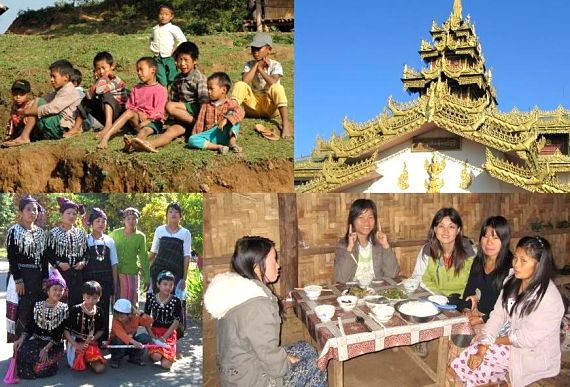
NextInsight: You have just told me you just finished your tour of volunteer duty in Myanmar, and are now back in Guangdong Province with your parents. How does it make you feel to be done with that four-year chunk of your life?
Ms. Yang: I was happier in Myanmar. Life is much simpler there. People there are so polite, kind and courteous. I miss home, but I don’t think what I just described in any way applies to Shenzhen. Let me put it this way... I can almost fully trust “strangers” in Myanmar, but I don’t dare do so here. It would be silly and naïve to do so. In Shenzhen, the people who are constantly getting their wallets and cell phones stolen are the ones fresh from the countryside... the “rural migrants.”
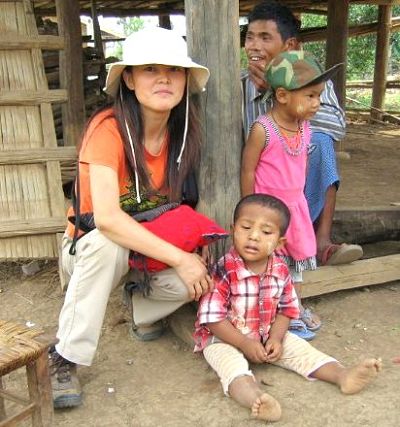
But in Myanmar, this country wisdom is a virtue. To trust strangers blindly is not naivete, but a virtue, and quickly earns you the acceptance of the villagers.
If you distrust someone on first meeting, they will never forget that first reaction you gave them, and it will be very hard to win the trust of the village from which he or she comes.
And in Myanmar, it is all about villages.
So if you only had two choices -- Myanmar or Shenzhen -- where would you choose and pray tell, why?
Ms. Yang: Except for the fact that the government there doesn’t do a great job caring for its people, I still felt that life there is very good. In fact, that is pretty much my only complaint about life in Myanmar – government ineptitude and corruption is really palpable. With all the natural resources and the relatively sparse population, why is their such squalor? But who am I to say. My job there was to help alleviate some of the hardships we encountered.
You were born and raised here, then you went not to Australia, the US or Europe to further your studies, but to ... Myanmar. That is a bit off the beaten path. What did you parents think at the time?
Ms. Yang: I studied sociology at Xiamen University, and my first assignment was to live with and document the daily lives of Hakka people in Fujian Province. So my parents were quite early on exposed to the somewhat unorthodox study techniques of sociology students. Therefore, when I announced that I was interested in serving for four years in the jungles of Myanmar, my parents barely blinked!
You stated that if given two choices, you would prefer living in Myanmar to Shenzhen. Would you say this is because you find Myanmar very appealing, or because you find Shenzhen unappealing?
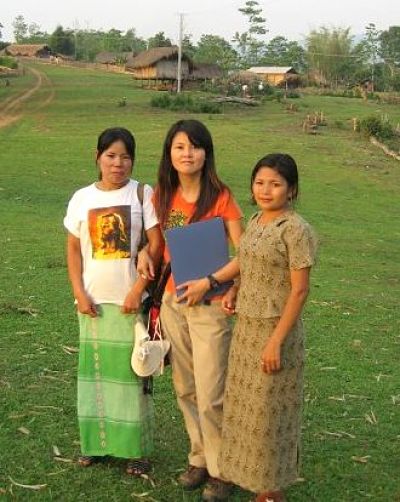
Ms. Yang: I think as a sociologist I am always reluctant to label social phenomena, because I don’t think you can pigeonhole or succinctly categorize people. This stratification of society is anathema to self-respecting sociologists.
That being said, I must say that Shenzhen is a very competitive and cutthroat society. I know that the economy is booming here, but I just have the feeling that if you make one slip here, you are immediately kicked down to the lowest rung of the social climbing ladder. This is both terrifying and invigorating. If you are competitive by nature, then Shenzhen is your little piece of Heaven.
But if you are someone more interested in working hard, but not at the expense of others, and a firm believer in a win-win career path as opposed to a zero sum war theater, then Shenzhen is definitely not the place for you. Perhaps this is why sociologists and social commentators make so much less, ridiculously less money than entrepreneurs and stockbrokers in this city. I am not sure what Mao Tse-tung would say, but perhaps Deng Xiaoping would give a wink and a nod and say... well done, Shenzhen.
I hope that you are not laughing at me, and thinking me foolish for studying sociology. But perhaps I am getting the last laugh, as while the analysts and company founders are living in their bungalows on the outskirts of Shenzhen, I am living less comfortably but more happily while knowing in full knowledge exactly which sociological factors got them their wealth and also just how tenuous and fleeting it all is.
See also:
SHENZHEN IT Employee 'In It For The Money'
SHENZHEN EXPAT: Briton Walking On The Wild Side
SHENZHEN STORIES: Air Hostess Sees Industry Taxiing For Major Takeoff







